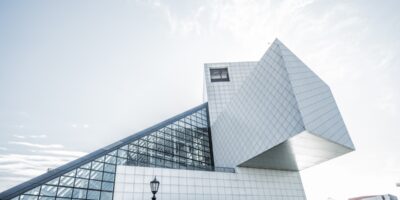Exploring the Lyceum of Alexandria
The Lyceum of Alexandria, often overshadowed by the famed Library of Alexandria, was a cornerstone of intellectual life in ancient Egypt. It served as a center for learning and debate, nurturing diverse fields like philosophy, mathematics, and science. Nestled in the bustling harbor city of Alexandria, the Lyceum attracted scholars from across the Hellenistic world. Its influence spread far beyond the city itself, shaping thought in many disciplines.

The Origins and Establishment
Founded during the reign of Ptolemy I Soter in the early 3rd century BCE, the Lyceum was part of a larger effort to establish Alexandria as a hub of culture and academia. Ptolemy aimed to create an intellectual epicenter that rivaled Athens and other Greek cities. The Lyceum, alongside the Library and the Museum, formed the backbone of this ambitious project. The educational environment was designed to foster collaboration and innovation among scholars.
Key Figures and Philosophers
Aristotle’s influence on the Lyceum was significant, even if he never visited Alexandria. His peripatetic school in Athens inspired similar institutions. Many philosophers who studied under Aristotle or his successors were drawn to Alexandria. Figures like Euclid, the father of geometry, and Hero of Alexandria contributed immensely to the intellectual climate. Their works laid the groundwork for many modern mathematical and engineering principles.
Academic Disciplines and Achievements
Much of ancient science and philosophy was interdisciplinary, and the Lyceum exemplified this approach. Mathematical studies, particularly geometry, flourished here. Euclid’s Elements became a foundational text, influencing generations of mathematicians. Astronomy and geography were also advanced extensively. Eratosthenes, for instance, calculated the Earth’s circumference with remarkable accuracy.
Philosophy and Ethics
Philosophical pursuits within the Lyceum covered a broad spectrum. Discussions encompassed ethics, metaphysics, and logic. These debates often spilled into public forums, influencing civic life in Alexandria. The interaction between Greek philosophical thought and Egyptian religious concepts created a unique intellectual synergy. Philosophers debated issues like the nature of the divine and human welfare, affecting ethical theories developed during this era.
Medicine and Biology
Medical sciences also progressed at the Lyceum. Building on knowledge imported from Hippocratic traditions, Alexandrian scholars made strides in anatomy and physiology. Herophilos and Erasistratus were pioneers in these fields, conducting dissections to understand human anatomy better. Their work laid the foundation for centuries of medical practice and was seen as revolutionary during their time.
Instruments and Innovations
The Lyceum fostered technological innovation. Many instruments utilized by scholars were developed or improved in Alexandria. The astrolabe and other astronomical devices were enhanced, allowing for precise observations. Hero of Alexandria’s inventions, such as the aeolipile, an early steam engine, showcased the ingenuity present within the Lyceum’s walls. These inventions were crucial not just for academic purposes but also for everyday life.
The Interaction of Cultures
Alexandria was a cultural melting pot, and the Lyceum reflected this diversity. Greek, Egyptian, and numerous other cultural influences mingled. This environment fostered tolerance and cross-pollination of ideas. Scholars were exposed to various philosophical traditions, from Platonism to Eastern mysticism. This cross-cultural exchange was pivotal in the development of new concepts and frameworks.
The Influence Beyond Alexandria
The impact of the Lyceum resonated far beyond the city’s borders. As a beacon of learning, it attracted scholars from distant lands. These scholars, in turn, disseminated Alexandrian ideas back to their native regions. The spread of Hellenistic culture through such exchanges significantly shaped intellectual history. Ideas originating in Alexandria found their way into Roman, Islamic, and later Renaissance thought.
Legacy in Modern Academia
The methodologies and ideas pioneered at the Lyceum have endured through the ages. Contemporary education systems owe much to the interdisciplinary and empirical approach cultivated here. Modern scientific inquiry still reflects the spirit of curiosity and rigorous debate central to Alexandrian institutions. Today’s universities, with their research-focused frameworks, mirror the structures established in Alexandria thousands of years ago.
Challenges and Decline
The Lyceum, like its sister institution the Library, faced challenges that led to its decline. Political turmoil, economic instability, and cultural shifts contributed to its eventual fall. Despite these challenges, the knowledge and approaches developed within the Lyceum had already permeated deeply into global intellectual traditions. The end of Alexandria’s golden age did not mark the end of its influence.
Modern Rediscovery and Interest
Recent archaeological efforts and historical studies have reignited interest in the Lyceum. While physical evidence is scarce, scholars continue to uncover and interpret texts that shed light on its activities. These ongoing efforts contribute to a deeper understanding of the Lyceum’s role in shaping human knowledge. Modern interest in the Lyceum mirrors society’s continual awe and respect for ancient civilizations’ contributions.
“`



